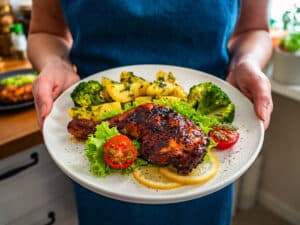In trying to save a grocery buck or two, many are joining up with a weekly service that provides a basket full of fresh produce each week for about half the price a grocery store would charge. This is a way to literally cut the cost for produce in half, especially if you are eating organically. But the catch is, the service picks what comes in the basket, and sometimes there are things you wouldn’t normally use.
When this week’s basket came with 8 large turnips in it, thinking hard and fast was the only real option, because these vegetables do not rank high on the “yum-o” list. The good news? All the turnip dishes tried were received with rave reviews. Here are the ways they were used:
Turnip Alfredo
Prepare your favorite Alfredo sauce and some brown rice penne . Shred a turnip into very thin strips and sauté it in a skillet in a small amount of olive oil. While it is cooking, dust it with onion powder. When it is tender and floppy, stir it into the Alfredo sauce. It will look as if strips of grated white cheese have been added, and it is delicious.
Turnip Mexican Rice
When making Mexican rice, start by sautéing onions and finely diced turnips in olive oil in the bottom of the pot. Again dust them with onion powder. Add rice and seasonings and cook as usual.
Turnip Pilaf
Pulverize a few turnips in the food processor and sauté them in olive oil. Add the rice and vegetables you like for a favorite pilaf. Or try adding mushrooms, broccoli, grated carrot, peas and almond slivers, with a dash of seasoning powder…mmmm!
Turnip Potato Pancakes
Potato pancakes are a great vehicle for getting more vegetables into your kids. They are even tastier and more nutritious when we add 1/3 part of shredded vegetables in place of part of the potatoes. You can use all kinds of veggies, from broccoli and carrots to summer squash and zucchini. Turnips are no exception! They make a very tasty potato pancake.
Turnips are an excellent source of vitamin C, fiber, folate, manganese, pantothenic acid, and copper. They are a very good source of thiamine, potassium, niacin, and magnesium. In addition, they are a good source of vitamins B6 and E, and riboflavin.



